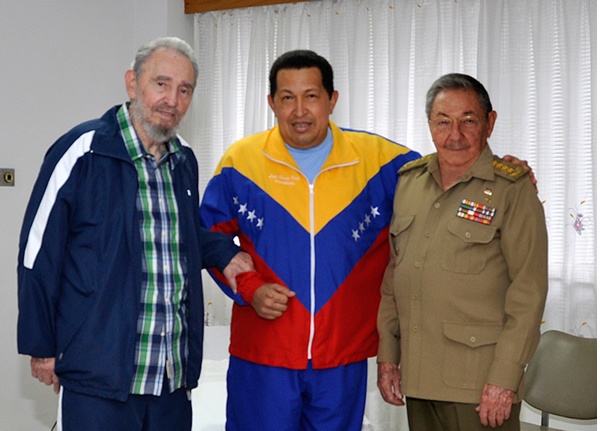Just weeks after his October presidential electoral victory, Hugo Chavez is returning to Cuba for unspecified cancer treatment.
The brief announcement of his return appears to contradict Chavez’s campaign reassurances that he had conquered cancer.
Prior to the October 7 elections, Chavez, president since 1999, did all in his power to reassure the Venezuelan people that he was strong enough to govern for another six years. On October 1, he said, “If I did not feel that I have the strength” to lead the country for another six-year term, “I would not be here.”
Voters delivered a 10 percent margin of victory over rival Henrique Capriles in part because they believed what their leader told them regarding his health. It was a component of a much broader strategy to win unfairly at the polls. And it worked.
Since October 7, Chavez has rarely appeared in public, and his return to Cuba will touch off a new round of speculation about his potential longevity. Chavez is slated to be sworn in for the next presidential term on January 10, 2013.
In Cuba, Fidel Castro has not been seen in public for months, although various sources continue to assert that the 86-year dictator remains “in good health” and “is keeping up with politics.”
The question in both the Cuban and Venezuelan cases regards the future stability of highly autocratic political systems. In the case of Cuba, Fidel Castro’s brother Raul has managed to keep an iron grip on power, mixing limited but tepid economic reforms with fierce repression of any potential political opposition. Facing no democratic constraints, Raul hopes to pass on power to post-Castro leadership without any domestic turbulence.
In Venezuela, Chavez has lined up a likely successor in his new vice president and foreign minister, Nicolas Maduro, but an orderly and constitutional succession will require new elections, discipline within Chavez’s Venezuelan Socialist Party, and the filling of the charismatic void that Chavez’s passing would leave.
Both Chavez and the Castros are banking on the second Obama Administration’s inclination not to champion democracy in the Americas or create unnecessary diplomatic waves, as they attempt to engineer political successions with a maximum of closed-door dealings and a minimum of transparency and genuine democracy.
